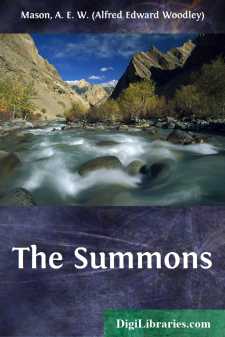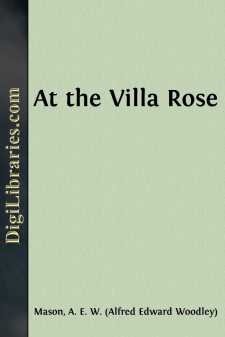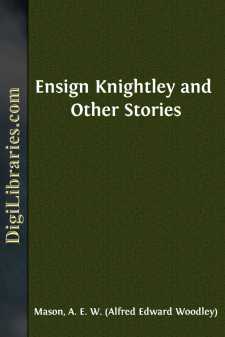Categories
- Antiques & Collectibles 13
- Architecture 36
- Art 48
- Bibles 22
- Biography & Autobiography 813
- Body, Mind & Spirit 142
- Business & Economics 28
- Children's Books 16
- Children's Fiction 13
- Computers 4
- Cooking 94
- Crafts & Hobbies 4
- Drama 346
- Education 46
- Family & Relationships 57
- Fiction 11829
- Games 19
- Gardening 17
- Health & Fitness 34
- History 1377
- House & Home 1
- Humor 147
- Juvenile Fiction 1873
- Juvenile Nonfiction 202
- Language Arts & Disciplines 88
- Law 16
- Literary Collections 686
- Literary Criticism 179
- Mathematics 13
- Medical 41
- Music 40
- Nature 179
- Non-Classifiable 1768
- Performing Arts 7
- Periodicals 1453
- Philosophy 64
- Photography 2
- Poetry 896
- Political Science 203
- Psychology 42
- Reference 154
- Religion 513
- Science 126
- Self-Help 84
- Social Science 81
- Sports & Recreation 34
- Study Aids 3
- Technology & Engineering 59
- Transportation 23
- Travel 463
- True Crime 29
The Philanderers
Description:
Excerpt
CHAPTER I
Hugh Fielding, while speculating upon certain obscure episodes in the history of a life otherwise familiar to an applauding public, and at a loss to understand them, caught eagerly at a simile. Now Fielding came second to none in his scorn for the simile as an explanation, possibly because he was so well acquainted with its convenience. 'A fairy lamp' he would describe it, quite conscious of the irony in his method of description, 'effective as an ornament upon a table-cloth, but a poor light to eat your dinner by.'
Nevertheless Fielding hugged this particular simile, applying it as a sort of skeleton key to the problem of Stephen Drake's career.
He compared Drake's career, or at all events that portion of it which was closed, to the writing of a book. So many years represent the accumulation of material, a deliberate accumulation; at a certain date the book is begun with a settled design, finis being clearly foreseen from the first word of the preface. But once fairly started the book throws the writer on one side and takes the lead, drags him, panting and protesting, after it, flings him down by-ways out of sight of his main road, tumbles him into people he had no thought of meeting, and finally stops him dead, Heaven knows where—in front of a blank wall, most likely, at the end of a cul de sac. He may sit down then and cry if he likes, but to that point he has come in spite of his intentions.
The actual settling down to the work, with the material duly ticketed at his elbow, in Drake's case Hugh Fielding dated back to a certain day towards the close of October.
Upon that afternoon the Dunrobin Castle from Cape Town steamed into Plymouth Harbour, and amongst the passengers one man stepped from the tender on to the quay and stood there absolutely alone. No one had gone out to the ship to meet him; no one came forward now on the quay-side, and it was evident from his indifference to the bystanders that he expected no one. The more careless of these would have accounted him a complete stranger to the locality, the more observant an absentee who had just returned, for while his looks expressed isolation, one significant gesture proved familiarity with the environments. As his eyes travelled up the tiers of houses and glanced along towards the Hoe, they paused now and again and rested upon any prominent object as though upon a remembered landmark, and each such recognition he emphasised with a nod of the head.
He turned his back towards the town, directing his glance in a circle. The afternoon, although toning to dusk, was kept bright by the scouring of a keen wind, and he noted the guard-ship on his right at its old moorings, the funnels rising like solid yellow columns from within a stockade of masts; thence he looked across the water to the yellowing woods of Mount Edgcumbe, watched for a moment or so the brown sails of the fishing-smacks dancing a chassez-croisez in the Sound, and turned back to face the hill-side. A fellow-passenger, hustled past him by half a dozen importunate children, extricated a hand to wave, and shouted a cheery 'See you in town, Drake.' Drake roused himself with a start and took a step in the same direction; he was confronted by a man in a Norfolk jacket and tweed knickerbockers, who, standing by, had caught the name....










